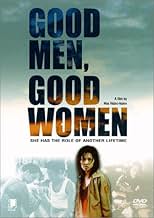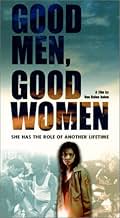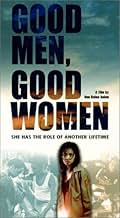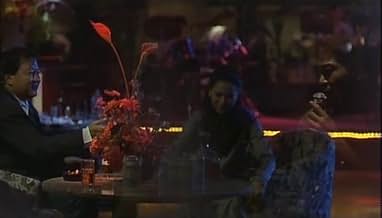It's cinematic masturbation (my term). That's not the same as intellectual masturbation, mind you. It's not that his films are pretentious, per se. Cinematic masturbation is when the filmmakers have no real desire to share their ideas, thoughts, and motives with the audience. It's all done for their own satisfaction. This is opposed to most other filmmakers, who practise cinematic intercourse, by which they call for the audience to participate in their films emotionally and/or intellectually. Hou's not the only cinematic masturbator. Jean-Luc Godard is another one, though nowhere near the level of Hou. I love Godard, but he has a tendency not to let his audience in on what his motive is (and, yes, artists, filmmakers most of all, should have a motive), especially in certain periods of his career. Tarkovsky's Mirror is another maturbatory film - it's far too incomprehensible to anyone who's not Tarkovsky. This is definitely a value judgement. Masturbation, especially on film, is extremely narcissistic. Frankly, it's unfair. Art is primarily for the audience, not the author. Otherwise, there is no point in it.
Take Good Men, Good Women. It's not a bad movie, really. Certainly not Hou's worst. Its main claim to greatness is its excellent cinematography, with some sections in a high-contrast black and white and others in brilliant color. Hou also decides to move his camera a bit and film from different angles. He's finally caught up with D.W. Griffith, although he still falls back on his favorite compositions again and again. The narrative is often great - there are several great individual scenes - but it's ultimately too difficult to follow, which is the exact same complaint I had of my (currently) favorite Hou film, City of Sadness. The plot of Good Men, Good Women revolves around the life of a famous Taiwanese actress (a real person; the film is dedicated to her) and, in the more modern section of the film, an actress who is apparently going to play this former actress in a film about her life (her story is broken into two different time periods). This made sense after I read up on it, but it was really confusing when I was watching it. I assume the same actress played both parts. It's confusing because Hou doesn't want to stress anything: characters are introduced with their backs to us or when they're in shadows. How does he really expect us to recognize and latch onto his characters? He just doesn't care. No, that's not it. It's that he doesn't want us to do so: some pretentious notion that a confusing movie is an artistic one.
If I were to see this film again, I might find it better. It's still cinematic masturbation. If the audience, after reading up on it or seeing it several times, then understands it, well, it only becomes mutual masturbation. Satisfying, but wouldn't you much rather be f*cking?






















